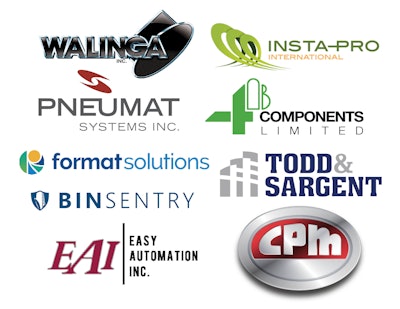In an era of increasing environmental scrutiny, feed manufacturers are turning to advanced formulation technologies to address sustainability challenges. Ian Mealey, product marketing director of formulation at Format Solutions, highlights the critical role of data-driven software in helping nutritionists balance nutritional requirements, cost-effectiveness and environmental impact, with emerging tools enabling more transparent and strategic ingredient selection across the global feed production landscape.
Transcription of Feed Strategy Chat with Ian Mealey, product marketing director - formulation, Format Solutions/Datacor
Jackie Roembke, editor-in-chief, WATT Feed Brands/Feed Strategy: Hi, everyone. Welcome to Feed Strategy Chat. I’m your host, Jackie Roembke, editor-in-chief of WATT Feed Brands and Feed Strategy magazine.
This edition of Feed Strategy Chat is brought to you by the Feed Mill of the Future Conference. The half-day event will bring together leading feed industry experts to examine emerging feed mill technologies poised to impact animal feed manufacturing. It will be held on January 28 at the International Production & Processing Expo (IPPE) 2025. The conference, produced by Feed Strategy and Feed & Grain, is organized in partnership with the American Feed Industry Association (AFIA). To learn more about the 2025 edition of the FMOTF Conference, visit www.feedmillofthefuture.com.
Today we're joined by Ian Mealey, product marketing director of formulation with Format Solutions, a Datacor company. He's here to explore how formulation software addresses sustainability needs in feed production and how it will need to evolve in the future. Hi, Ian, how are you today?
Ian Mealey, product marketing director of formulation, Format Solutions/Datacor: I'm fine. Thank you. Hi there.
Roembke: Well, let's get right into it. How is the feed industry evolving to address the growing demand for sustainability in feed production beyond the traditional cost reduction strategies?
Mealey: Their customers are my customers. Feed manufacturers are very aware of the changing needs in regard to sustainability. Different parts of the world are evolving in different rates, I would say. So here in Europe, we're having to make declarations of feed’s footprint so the need to provide that information is very much in the front of many people's minds.
Customers are also even employing roles in their business, managing sustainability, with a focus to improving a company's sustainability, and also helping their customers on farm and how they utilize feed in a more sustainable way, so that the topic is often driven through the whole food chain, and how that then impacts how they have to react and to remain competitive.
Roembke: Great insight. Now, what are the key challenges that the feed manufacturers face when trying to integrate environmental considerations into the recipe formulations, and how can technology help them overcome these challenges?
Mealey: I think the main challenge really is around data and knowing where to go for the right data. We all use many different recipe ingredients from different sources and knowing precisely how to measure the environmental footprint from formulas, and all the other activities around producing feed, is quite a challenge for the people I talk to. I think technology can help in a number of ways. One, when you have got a data source, being able to manage that data, collate it and report on it. And the use of life-cycle analysis tools is very pertinent, for example, in relation to the formulation for our feeds, of course. I think that's how technology is going to really be a strong tool in overcoming this challenge and helping us achieve sustainability goals.
Roembke: Describe the ways formulation software acts as a strategic tool to balance nutrition requirements, cost effectiveness and, of course, that environmental sustainability.
Mealey: Building on that, having the data as a starting point, formulation tools can use that data and help the nutritionist as they produce their feeds and recipes. And so, there is a reporting element, which when you understand more about the environmental impacts and how those are driven from within a recipe, that helps you make decisions.
I think transparency and clarity of information joining the data through integration into the formulation is really helpful. And, of course, that understanding helps us, as I say, with decision-making, and that decision-making around ingredient selection. This formulation activity has always been very important in evaluating which ingredient to use, and that helps us to balance the nutrition and quality requirements which are still there with the sustainability responsibilities that we have as well. Bringing those together is a key role in formulation.
I think there's a holistic view as well, which we mustn't forget. It's not just about the recipe. That recipe will be utilized on farm. And obviously those animals have to perform still, and so that feedback loop will be important in making decisions as well. And then beyond the reporting and evaluating of ingredients, optimization techniques, mathematical techniques are already coming into play to help us make the right choices around the balance of nutrition and sustainability in the most cost-effective way, so that those considerations are still there, and I think we'll see those develop as well.
Roembke: Thank you so much for those insights. Now, if you'd like more information about how formulation will impact the future sustainability of feed production, and you will be at IPPE 2025, please join us at the Feed Mill of the Future Conference, where Ian will be speaking on the topic. For more information about the agenda, the speakers, and to register, please visit www.feedmillofthefuture.com.
Thank you so much, Ian, and thanks to you for tuning in.
SPONSORED BY
